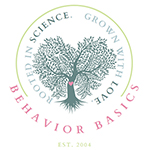What is ABA?
Consistent ABA therapy can significantly improve behaviors and skills and may decrease the need for long-term behavioral therapy.
Applied Behavior Analysis (ABA) is a type of therapy that focuses on improving specific behaviors, such as social skills, communication, emotional intelligence, and academics as well as adaptive learning skills, such as fine motor dexterity, hygiene, grooming. ABA is effective for children and adults with psychological disorders, behavior disorders, trauma induced behaviors, and work in a variety of settings, including schools, workplaces, homes, and clinics. Consistent ABA therapy can significantly improve behaviors and skills and may decrease the need for long term special services.
ABA takes a research approach to therapy based on proven theories of learning and behavior. Behavior Analysts understand how human behaviors are learned and how they can be changed over time. The analyst evaluates a client’s behavior and develops treatment plans to help improve the communication and behavior skills necessary for success in their lives. ABA clinicians also provide training to parents and teachers. Behavior Analysts work within settings such as schools, homes, and community centers to evaluate and modify treatment as it progresses.
Components of ABA Therapy
Functional Behavior Assessment (FBA) – an approach to determining why a person acts a certain way; what’s behind the behavior? The outcomes of this assessment guide the analyst to develop a targeted intervention plan to decrease the inappropriate behaviors and increase appropriate alternative or replacement behaviors. The results of the FBA are data driven and based in a scientific approach to identity and treatment.
FBA may include:
- evaluation of problem behaviors and skill deficits
- an emotional needs assessment
- social development assessment
- daily living skill assessment
Behavior Intervention Plan (BIP) - the results of the FBA drive the analyst to design a specific intervention plan to address the behaviors of concern. The plan focus is two-fold: 1) actions and strategies to be used to make unsafe or unsavory behaviors happen less often and strategies to be used in the event one of the behaviors occurs, and 2) strategies and acquisition targets geared toward teaching the child appropriate alternative skills and behaviors.
BIP may include:
- skill acquisition programming
- anger management training
- emotion IQ training
- social skill acquisition training
